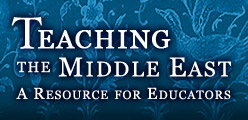Islam and Ethnicity
For most Muslims, the bonds of faith supersede all others, even those of ethnicity and kinship. In the Qur’anic version of the story of Abraham and Isaac (Isma’il in the Qur’anic version; see Qur’an 37:99-111) the message is clear. God requires Abraham to sacrifice his son; Isma’il accepts this demand. Submission to God’s demands overrides consideration of family and lineage. Many key Muslim intellectuals in the modern period have explicitly rejected nationalism, tribalism, and all other ideas about ethnic belonging, notably Egypt’s Sayyid Qutb. And yet family and loyalty to one’s kin group are values explicitly recognized in the Qur’an (e.g. Qur’an 2:256 and 31: 22). So Islam and loyalty to kin and ethnic groups are not always antithetical or antagonistic as far as the Qur’an is concerned. Nation-states in the Middle East, and elsewhere, have asserted Islamic identity as the national identity either explicitly (as in Pakistan, Iran or Malaysia) or implicitly. Even in secular nation-states, like Turkey, the leader in the struggle for national independence, Mustafa Kemal Ataturk, continues to be known by the title gazi (meaning a warrior for the faith in frontier regions), and those who die during Turkish military service are referred to as sehitler, ‘martyrs’, no matter who the enemy might be. The symbols and language of Islam have often supported senses of belonging we might label, anthropologically speaking, as ‘ethnic’.
Supporting Links:
“Middle East and Islam: Ethnicity.” University of Oklahoma Middle Eastern Studies Links. Link to resource![]() (accessed May 7, 2010).
(accessed May 7, 2010).
Savage, Timothy M. “Europe and Islam: Crescent Waxing, Cultures Clashing.” The Washington Quarterly, Summer 2004
27:3 pp. 25–50. Link to resource![]() (accessed May 7, 2010).
(accessed May 7, 2010).

 Martin Stokes
Martin Stokes
Fellow of St. John’s College, Oxford University
Guiding Questions
1. What aspect of Identity is most important for many Muslims?
2. Can a person be loyal to their divinity and their family? Can s/he maintain this duality constantly?
3. Give 2-3 examples of ways that religious identity is salient in Middle Eastern Nation-States.


 Print Page
Print Page
